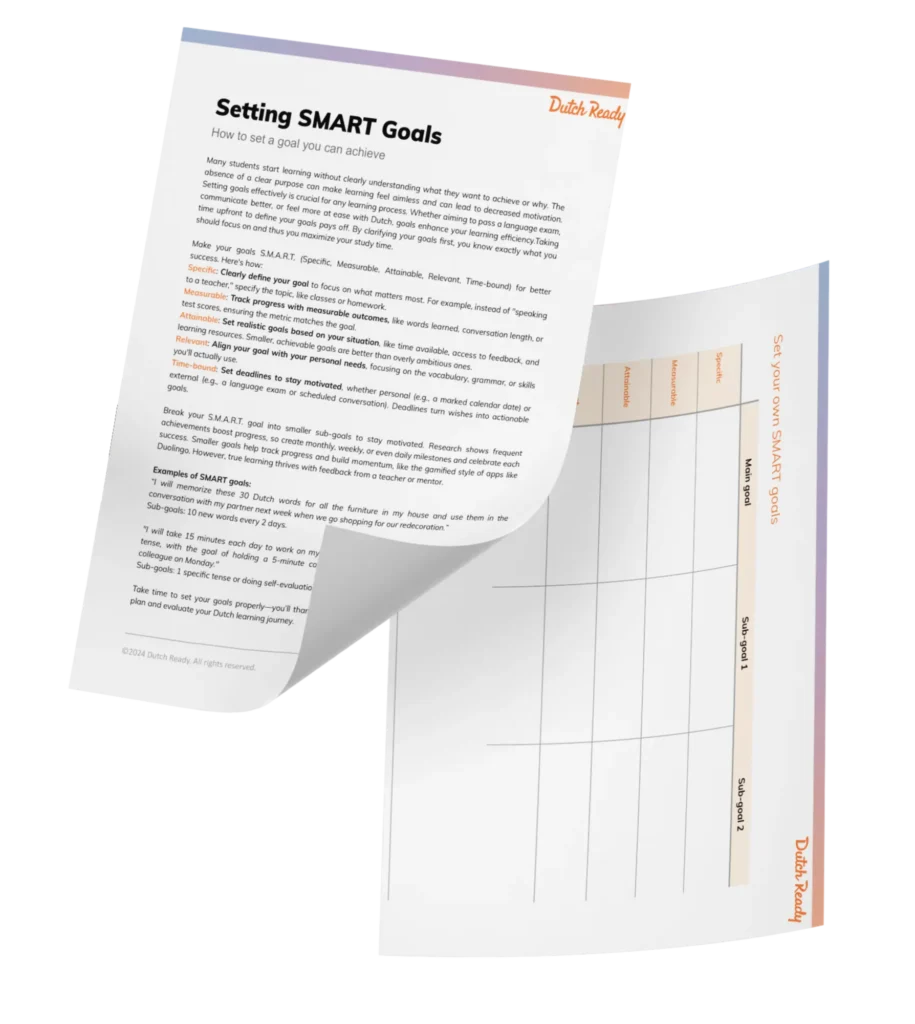Set your personal learning goals to learn as effectively as possible
Working towards language goals is only worth it when those goals are personally relevant.
Focus on your personal learning goals, your deep-rooted reason to learn, before getting started to get the most out of yourself.
Why, why, why?
Ask yourself the question ‘why?’ three times to find your underlying reason. This way, you’ll go from what seems to be a crystal-clear goal to an answer that serves real motivational purpose.
For example: you don’t just want to improve your speaking skills, you want to be able to communicate better to build meaningful relationships with your Dutch friends.


Why, why, why?
Ask yourself the question ‘why?’ three times to find your underlying reason. This way, you’ll go from what seems to be a crystal-clear goal to an answer that serves real motivational purpose.
For example: you don’t just want to improve your speaking skills, you want to be able to communicate better to build meaningful relationships with your Dutch friends.
Set your personal learning goals the SMART way
Is the reason for your goal clear? Let’s continue and turn this goal into a SMART goal: Specific, Measurable, Attainable, Relevant, and Time-bound.
Take a moment to think about it before you start (or continue) to learn the Dutch language. Discover how a small time investment now will pay off in the long run!
Complete the form to access the free download.
Ready to achieve more?
Explore our Sound Comparison E-learning
Unlock even more in-depth explanations and interactive learning with our sound comparison e-learning, featuring detailed video tutorials to refine your Dutch pronunciation skills.
Looking for more tools?
Explore more in our shop



